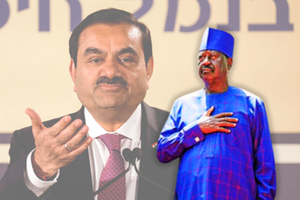Let’s talk more about GBV, therein lies the solution

A gender-based violence victim.
What you need to know:
- Common forms of GBV are sexual violence, violence against women, domestic violence, and harmful traditional practices such as female genital mutilation.
- A comprehensive study by the National Gender and Equality Commission in 2016 brought forth the shocking economic burden of GBV to survivors and the country.
More often than not, Gender-Based Violence (GBV) is so stigmatising to talk about.
Several online and offline initiatives have been launched to spearhead efforts to eradicate GBV in homes, workplaces and other community spaces. However, cases are still being reported.
This shows the need to have the GBV conversation more, to deal with related discomfort and stigma so that more advancements can be made towards violence prevention.
The Committee on Elimination of Discrimination Against Women has defined GBV as a form of violence that disproportionately affects women.
Some common forms are sexual violence, violence against women, domestic violence, and harmful traditional practices such as female genital mutilation (FGM).
Since the global adoption of the Beijing Declaration and Platform for Action, Kenya has recorded substantial progress in advancing gender equality and empowerment of women and girls.
The advancements include the adoption of policy and legal measures related to GBV, FGM, gender parity in school enrolment at the primary level, progress on women’s representation in leadership and decision-making, the right to matrimonial property, and the right to citizenship.
Impediments
Despite this progress, women and girls continue to face discrimination, exclusion, and inequality across economic, social and political fronts.
Globally and in Kenya, some of the containment measures to mitigate the impact of Covid-19, such as national curfews, lockdowns, and school closures, were shown to expose girls to FGM and discriminatory and harmful practices, including early and forced child marriages.
Kenya, like many other countries around the world, experienced an increase in reported cases of physical and sexual violence, including domestic violence against women and girls during restrictions on mobility to curb the spread of the virus.
According to UNFPA, pandemics often lead to breakdowns of social infrastructures, thus compounding the already existing weaknesses and conflicts. As a result, the existing gender inequality is worsened by the pandemic situations. It also increases the exposure of children and women to harassment and sexual violence when they try to procure necessities such as water, food, and firewood.
Even before the pandemic, high levels of violence against women and girls, impunity, and a lack of accountability and services for survivors were ongoing problems in Kenya. Statistically, most perpetrators are close relatives, guardians, and/or persons living with the survivors from the recorded cases.
In a survey undertaken by the National Crime Research Centre on the prevalence of GBV during the pandemic, the number of GBV cases recorded between January and June 2020 had shot up by 92.2 per cent compared with those between January and December the previous year. According to the Chief Justice’s report in April 2020, sexual offences constituted 35.8 per cent of reported cases handled by the Judiciary.
GBV is a serious problem in Kenya. About 40 per cent of women are expected to experience some form of violence in their lifetime, with intimate partner violence being the most common form. while one in five girls face child marriage or FGM. Covid-19 has exacerbated GBV globally, and Kenya is no exception. The UN reported that calls to GBV hotlines increased in the country by 775 per cent in March and April 2020.
Burden
A comprehensive study by the National Gender and Equality Commission in 2016 brought forth the shocking economic burden of GBV to survivors and the country. The average cost of medical expenses per survivor and family amounted to Sh16,464; reporting the incident to a chief and community structures cost Sh3,111; reporting to police cost Sh3,756; productivity loss from serious injuries amounted to Sh223,476; productivity loss from minor injuries was Sh18,623; and productivity loss from premature mortality from GBV amounted to a massive Sh5,840,664.
The report further indicates that perpetrators and their families similarly incur heavy losses arising from incarceration, litigation, social stigma, and loss of time and productivity. Perpetrators and their families incurred costs of about Sh33,000 in legal fees, Sh85,000 in court fines, and Sh20,000 in other costs related to litigation. Lost monthly income due to incarceration was about Sh28,000. These combined costs have societal implications for perpetrators, their families, and the country. They represent a waste of resources, which, otherwise, would be channelled to more productive sectors.
In response, the government has committed to ending GBV and FGM by 2026, a bold commitment that requires the removal of systematic barriers that enable such violence to thrive. Vision 2030, through its social pillar, commits Kenya to invest in its people to improve the quality of life for all by targeting a cross-section of human and social welfare projects and programmes, including gender equality drives.
The above context and evidence base provides the basis for the need and urgency to address GBV in Kenya. Despite the gains, a lot needs to be done and GBV needs concerted effort to root it out. Eliminating GBV and its long-felt pain will take serious commitment but will enable Kenyans to feel that they belong to a caring society.




